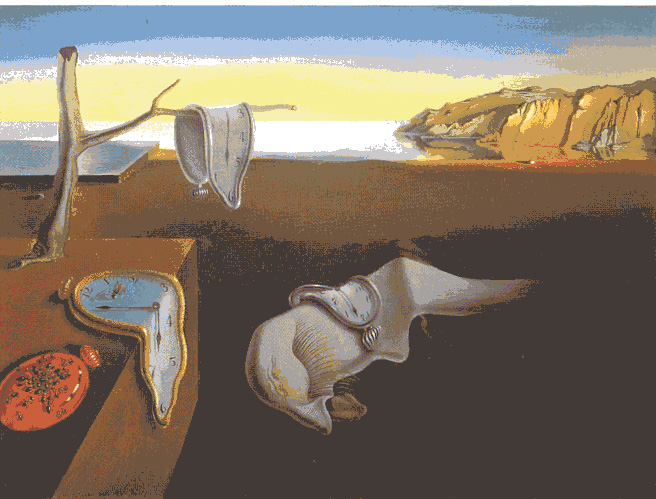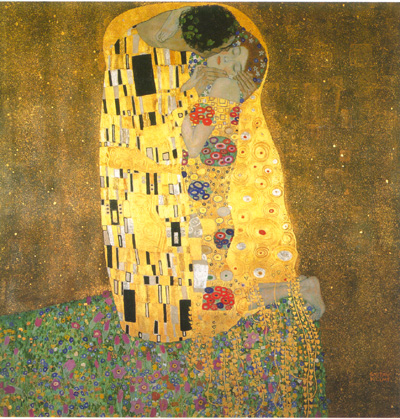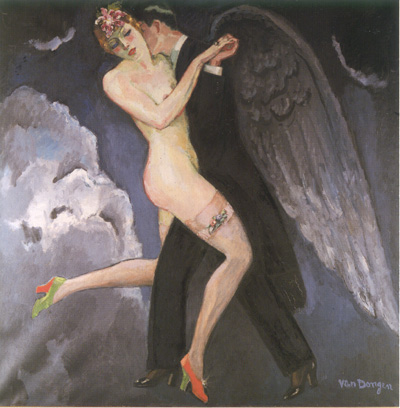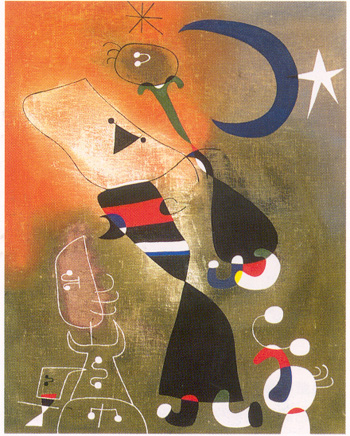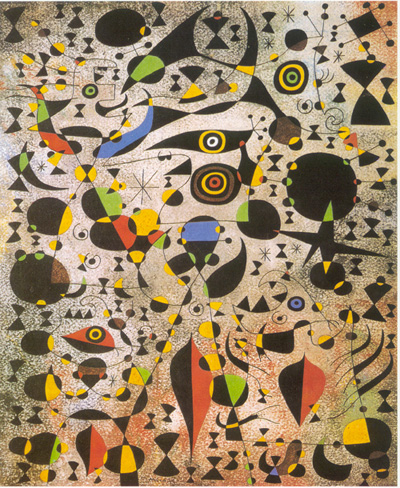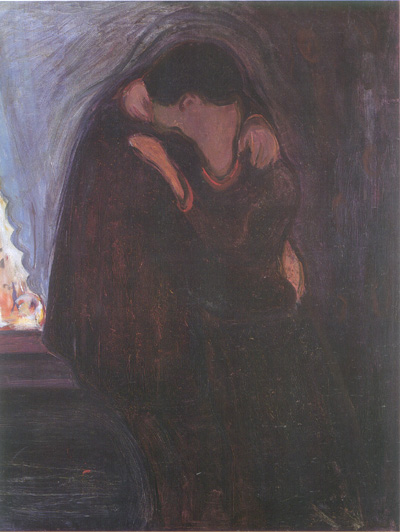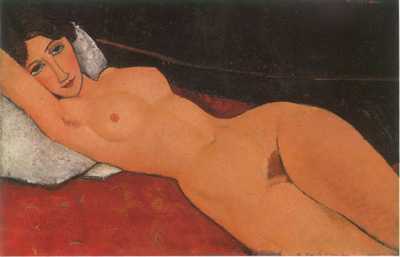The
Life of Andrew Marvell (1621-1678)
1621- born in Yorkshire, England (on March
31)
1624- his family moved to Hull
1633- studied in Trinity College, Cambridge
1638- graduated from Trinity College
1640 - left Cambridge ( because of his father's
death);
1642 held a clerkship in his brother-in-law's
trading house
1650- become the tutor of Mary Fairfax
1653 - tutored Cromwell's ward
1657- 1657-
appointed assistant to John Milton (by then blind)
1659- elected M.P. for his hometown of Hull
1678- came to his death (on August 18)
(By Joyce)
[TOP]
"To
His Coy Mistress"
Paraphrase
1
Had we but world enough, and time,
2
This coyness, lady, were no crime.
3
We would sit down and think which way
4
To walk, and pass our long love's day;
If
we have enough world and time,
This
coyness was no crime.
We
should sit down, and think which way to walk,
And
pass our long lovely day.
5
Thou by the Indian Ganges' side
6
Shouldst rubies find: I by the tide
7
Of Humber would complain. I would
Youshould
find rubies from the Indian Ganges' side, and I can wait for you
by
the river's side of Humber.
8
Love you ten years before the Flood;
9
And you should, if you please refuse
10
Till the conversion of the Jews.
I
would love you ten years before the beginning of the world,
you
can refuse me until before the end of the world.
11
My vegetable love should grow
12
Vaster than empires, and more slow;
13
An hundred years should go to praise
14
Thine eyes, and on thy forehead gaze;
15
Two hundred to adore each breast,
16
But thirty thousand to the rest;
My
love should grow very slowly and remain still, which is vaster than
empires,
And
even more slow;
I
will spend a hundred years to praise your eyes and gaze on your forehead;
I will spend thirty thousand yours to adore your body;
17
An age at least to every part,
18
And the last age should show your heart.
19
For, lady, you deserve this state,
20
Nor would I love at lower rate.
I
will spend an age at least to adore every other part of the rest of
your body,
And
the last age, you can show me your heart.
Because
you deserve this dignity,
And
I would love you the best as I can.
21
But at my back I always hear
22
Time's winged chariot hurrying near; [painting2]
23
And yonder all before us lie [painting1]
24
Deserts of vast eternity.
But
I always hear the time flying at my back in a hurry; And in front of
us is a vast eternity desert of non-existence,
25
Thy beauty shall no more be found,
26
Nor, in thy marble vault, shall sound
27
My echoing song; then worms shall try
28
That long preserv'd virginity,
And
your beauty should be no more found,
Neither
in your grave can be my echoing song found.
Then
the worm shall try the long preserved virginity.
29
And your quaint honour turn to dust,
30
And into ashes all my lust.
31
The grave's a fine and private place,
32
But none I think do there embrace.
Your
honor will turn to dust, and my lust will also turn to ashes.
Nobody
would like to embrace in the grave, although it is a fine and private
place.
33
Now therefore, while the youthful hue [painting7]
34
Sits on thy skin like morning dew,
35
And while thy willing soul transpires
36
At every pore with instant fires,
Therefore
when your youthful color is still on your skin,
Which
is like the morning dew, And when your pores are still passionate,
37
Now let us sport us while we may; [painting5][painting6]
38
And now, like am'rous birds of prey,
39
Rather at once our time devour,
40
Than languish in his slow-chapp'd power.
Let
us make love while we may, like amorous birds of prey,
I
rather devour our time at once than languish by the slow-chapped time.
41
Let us roll all our strength, and all [painting3][painting4]
42
Our sweetness, up into one ball;
43
And tear our pleasures with rough strife
44
Thorough the iron gates of life.
Let
us roll our strength and sweetness together,
And
tear our pleasure with rough fight,
Our
energy can run through the iron gates of time.
45
Thus, though we cannot make our sun
46
Stand still, yet we will make him run.
We
cannot stop the sun,
But
we make it melt by our passion.
By
Sophia
[TOP]
Vocabulary
coy
(adj.) 14th century "quiet, shy", from Middle French // Woman:
shy, or pretend to be shy about love and sex
Mistress
(n.) 15th century 1 : a woman who has power, authority, or ownership
2. a woman other than his wife with whom a married man has a continuing
sexual
Indian
Ganges (L.5) (n.) river 1550 miles in India flowing from the Himalayas
SE & E to Bay of Bengal a(India)
Humber
(L.7) (n.) name of a small river in Marvell's hometown a(England)
Flood
(L.8) (n.) before 12th century CAPITALIZED: a flood described in the
Bible as covering the earth in the time of Noah a (This word suggests
the beginning of the world)
The
conversion of the Jews (L.10) (n.) which will occur before the end of
the world a(the end of the world)
vegetable
love (L.11) (n.) vegetable soul- The most basic kind of soul in living
things animal soul- animals rational soul - The most advanced kind of
souls found in human beings a(love: lower, basic)
chariot
(L.22) (n.) Middle English 14th century a two-wheeled horse-drawn battle
car used in ancient times in fighting and racing
yonder
(L.23) (adv.) 14th century over there / distant
quaint
(L.29) (adj.) 13th century attractive, but unusual & rather old-fashioned
hue (L.33) (n.) before 12th century = color (n.)
devour
(L.39) (v.) 14th century to use up or destroy as if by eating
lust
(L.30) (n.) before 12th century a feeling of strong sexual desire for
someone
languish
(L.40) (v.) 14th century be forced to suffer in an unpleasant situation
By Grace
Huang
( Cited from www.m-w.com)
[TOP]
Structure
The poem
was divided into three parts according to Scholastic Syllogism. Stanza
One and Stanza Two are the Premises. And Stanza Three is the Conclusion.
The logical arguments are 1. " If we had" 2. "But" and 3. "Therefore".
We might see the influence of Aristotle and Thomas Aquinas.
The leading
arguments are followings.
The first
Stanza shows that the space and time are eternal. The second Stanza
shows that we are not eternal. The last Stanza shows that we only
have to live our every moment for fun.
The second
arguments are about eternal love and physical lust. Eternal love is
lasting long, so the first Stanza is long. The life of the coy mistress
is short, so the second Stanza is short. The last part is the shortest,
because that kind of things is just a spark.
By Blues
[TOP]
Speaker
A man, who is wooing the
woman, tries to persuade her to make love with him.
[TOP]
Listener
A coy young woman who wouldn't
accept the man's love.
[TOP]
Simile
1. morning dew
this represents
the crystal-clear skin of the mistress
2. am'rous birds of prey
the strength
of speed, consumption of passion these represent the delightful groans
made by a pair of lovers when they are making love with each other
( By Joyce)
[TOP]
Allusion
1. vegetable love
Marvell
cited this term to indicate that this kind of love is capable only of
passive growth, not of consciousness, although it grows longer, slower,
and vaster ¡]You may add The Flood and the
conversion of the Jews¡^(By
Joyce)
[TOP]
Personal
Opinion
|
|
From this poem, I
can feel the passion of this man, the speaker, and how much he
admired the coy Mistress, the listener. However, when I re-thought
the title of this poem after I read the whole poem, I had the
opinion as follows:
I
thought the Mistress might be a woman having power and a fortune.
She might be a queen of a kingdom, or a lover of a king or a duke,
and she knew that the speaker liked and adored her before the
speaker wrote this poem but she did not accept him because of
her high social class and authority. She might be touched by this
poem and have relationship with this man but their relationship
might be continued privately because the Mistress wants to keep
her position.
Usually
people have different feeling after they read a same poem. Some
people pay attention to its sound and enjoy its rhythm, and some
people like to note the word choice. I like to imagine why a poet
writes a poem and what the poem will cause. ( Grace Huang )
|
|
|
To
His Coy Mistress is also a metaphysical poem, which takes time
and space to symbolize and exaggerate his love to his coy mistress
in order to persuade her to make love with him. I like metaphysical
poems very much as The Flea , because reading those poems is filled
of surprises and you can never imagine how the poet be so creative
to take the flood, the Jews or the worms in graves to link with
his great love and lust; the flea links to their sexual relationship.
If I were that mistress, it is easy to be allured by the poem,
even I was coy. It makes me think that I shouldn't be so coy because
life is short, and I should have fun when I am still young and
beautiful. However, I wouldn't be persuaded by his exaggerating
sweet talking of making love with him, because he is not really
in love with me - line18, and the last age should show your heart,
which obviously shows that he just wants sex rather than a lover.
( Sophia)
|
|
|
If
I were his mistress, I think I would not promise him. Though he
used many terms to show that time flies and she should seize every
moment with him, I think those are not persuasive enough. True
love should be based on trust and concern. It seems that the man
was eager to get the sexual relationship with her, but he didn't
show any signs of love before he proposed the request. Besides,
the man tried to lift his mistress up by praising and admiring
her and even used the long period of time to let her understand
how deep his love toward her is, but a wise woman should not be
hoodwinked by superficial sweet and fine-sounding words.
However,
there is another possibility that if the man is truly and deeply
fell in love with her, but it is coyness that made the woman refuse
his request from beginning to the end, this poem may be considered
as a warn to the woman. Through this poem the man could remind
her that time will pass very fast if she didn't nod her head quickly.
Then they both can't enjoy the delightful time when they are together.
(Joyce
)
|
|
|
I
think that it is a wild poem, especially when I understand this
poem deeply. It differs from Chinese love poem. It is not conservative
anymore. Even in the modern age, most people won't talk about
love frankly and totally. However, the author describes the time
and space successfully.
His
description makes people feel that Carpe Diem is so significant.
We should persuade what we love or like right away or that will
be a pity. This poem shows the idea strongly. Besides, it makes
people believe that the author must be full of passion and energy.
It seems that his strong confidence can have great influence on
not only the lady that he is wooing but also the world. For me,
though I am not old, sometimes I do not have so much passion to
life. Therefore, I think it is important to live an optimistic
and aggressive life. After all, life is filled with chances and
challenges. Only keeping the faith and facing everything actively
can make the word become better and different. I hope that one
day, I will be able to persuade what I really want without hesitate.
( Claire)
|
[TOP]
Questions
for Discussion
1. If you
were the speaker, would you use this strategy?
2. If you
were the listener, would you be attempted by him or the poem?
3. Do you
think the speaker is looking for a lover or a sexual companion?
¡]typed and edited by Blues¡^
[TOP]
Paintings
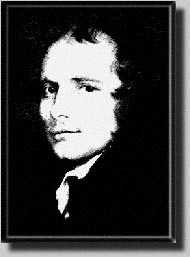 Thursady,
March 16, 2000
Thursady,
March 16, 2000